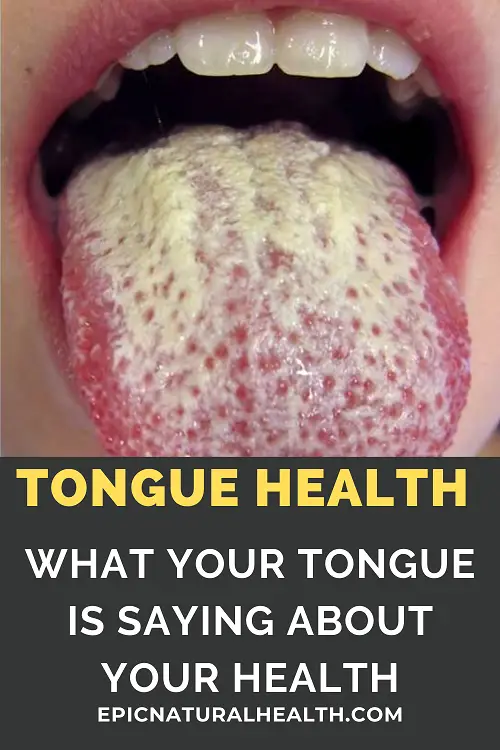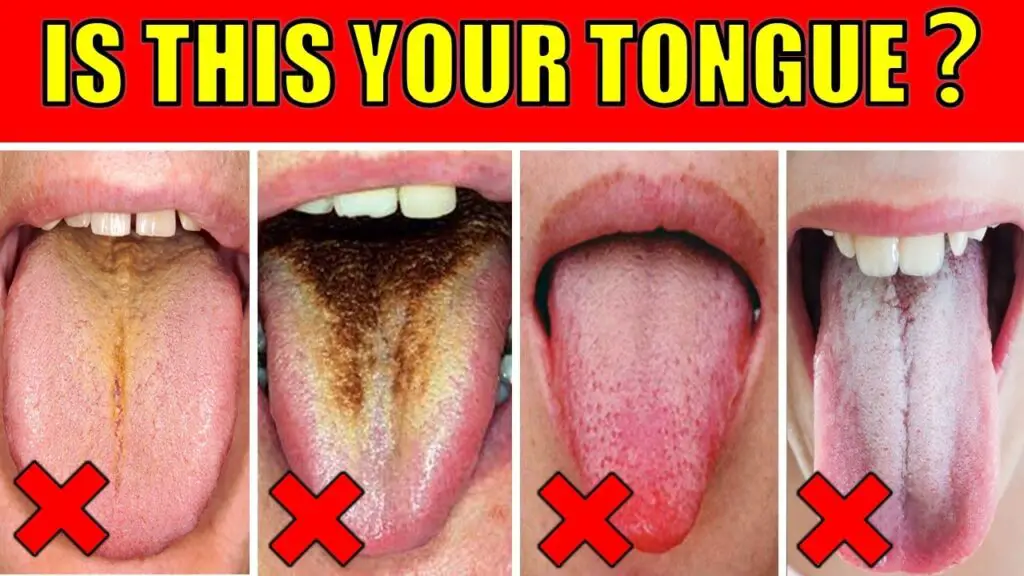Chances are, you don't spend a lot of time thinking about your tongue. The tongue is a muscle that never gets tired, aiding speech, eating, and drinking. We often take our tongue for granted - until we notice some kind of change in our tongue health.
In fact, your tongue could tell you a lot about the health of your whole body. Changes in color, texture, sensation and more can all hint at underlying issues - some serious, some minor. So, it's good to keep an eye on your tongue, and be aware of any changes in your tongue health.
What Does a Healthy Tongue Look Like?
A healthy tongue shouldn't be completely smooth. Our tongues are covered with taste buds, which may vary slightly in size and might be visible. A tongue should be a healthy pink color, free of discoloration, fissures, or other kinds of crack and lumps. The edges should be smooth and rounded, and you should never experience pain or discomfort while you're eating. In fact, most of the time, you should hardly be aware of your tongue at all.
Tongue Changes to Watch Out For
Certain changes in texture, color, or more can indicate that there's something wrong with your tongue. The problem could be as simple as an ulcer, or it could be more complex. Let's take a look at what your tongue can tell you about your overall health.

1. Color Changes
A healthy tongue can vary in color, between several lighter and darker shades of pink. That is fine. But the tongue can change to red, white, or yellow, which forms in patches, lines, or lumps. What does each color mean, and when should you be concerned?
White Tongue
Thick, white patches or a cottage cheese-like white coating on your tongue may indicate oral thrush, which creates white spots on the tongue and cheeks. People with dentures, those suffering from diabetes, people with weakened immune systems, and toddlers could be at higher risk from oral thrush.
White lines across the tongue could be a symptom of oral lichen planus. While this type of white tongue appearance can go away on its own, it's still wise to see your doctor.
Red Tongue
Similarly, a bright red tongue may be a sign of other health conditions, such as certain vitamin deficiencies (a vitamin B12 or folic acid deficiency is particularly common). If the redness is caused by a vitamin deficiency, it should clear up when the deficiency is dealt with. Make sure you're getting plenty of B vitamins and folic acid in your daily diet.
Kawasaki disease can cause a bright red tongue, as well as other symptoms. This is a rare disease that can affect very young children.
Scarlet fever causes redness, along with large bumps on your tongue. Usually, more serious diseases like scarlet fever and kawasaki disease are accompanied by other symptoms, like a fever. If you think you may have kawasaki disease, get it checked out as soon as possible.
Yellow Tongue
Discoloration can make your tongue yellow. Smokers' tongues can turn yellow, especially if a person chews tobacco. Psoriasis can cause yellowing. In extreme cases, jaundice can cause a yellowed tongue.
If you're not sure whether the discoloration in your tongue is caused by your diet (if you've just eaten a meal, for example) or something else, clean your teeth and tongue thoroughly and see if that helps.
Black Tongue
A black and hairy tongue can be a bit of a shock. However, more often than not, a black tongue comes from a reasonably harmless cause. People with diabetes are more likely to have a blackened tongue, and chemotherapy and poor oral hygiene can also cause a tongue to have a blackened or "hairy" appearance. Of course, if you're concerned about a black, hairy tongue, it's always best to see your doctor.
2. Changes in Texture
The first change in your tongue that you might notice is a sore, bumpy texture. A quick Google search might bring up terrifying articles talking about oral cancer and tumors. Before you panic, remember that most causes of a sore, bumpy texture on the tongue are quite simple - and not cancer-related. Canker sores, burns or accidental bites, or tobacco use can all cause a sore, bumpy tongue. Usually, these issues are relatively normal and harmless, and will clear up in a few weeks.
For soreness or bumps that don't clear up within two weeks, visit a doctor. The cause is most likely benign, but it's good to check.
3. Swelling
A sudden swelling of the tongue could be a sign of an allergic reaction. If your tongue suddenly swells up, you should see medical advice immediately, as this can result in difficulty breathing. The swelling may be accompanied by shortness of breath, or swelling in the lips, mouth, throat, or hands.
Strep throat, an overactive thyroid, or anemia can cause tongue swelling. More serious health issues, such as tongue cancer, mouth cancer or leukemia, can cause the tongue to swell. A permanent swelling in your tongue, whether accompanied by other symptoms or not (such as pain, or bumps on your tongue) should be checked out by a doctor. Chances are, it's nothing, but if it's not normal, you'll want to set your mind at rest.
4. Painful Tongue

More often than not, a painful tongue area, or pain elsewhere in your mouth, can be traced back to accidentally biting your tongue or the inside of your cheeks during dinner, eating or drinking something too hot, or a nasty little canker sore. A bite or some other form of irritation can give you a painful tongue for several days, depending on the extent of the injury.
While some conditions, like tongue cancer, oral cancer or tumors, may cause tongue discomfort, it can also be caused by something as simple as poorly fitted dentures or braces. Canker sores can be very painful, and last for up to several weeks. While there are pain-relieving gels you can use, a canker sore should receed by itself. In the meantime, try and avoid hot, spicy, or irritating foods.
Of course, if your discomfort lasts for more than a few weeks, you should see a doctor to rule out more serious causes.

5. Loss of Taste
A loss of taste could be due to a mouth injury, especially a burn or recent injury or infection. Something as simple as a cold or virus could lead to a reduced sense of taste.
A loss of taste could be related to an issue with the taste buds, or even with the salivary glands. If a loss of taste lasts for more than a week or two, or shows no sign of improvement, visit a doctor.
6. Unusual Sensations
You may notice a burning, prickling, or numb sensation in your tongue. This could be due to an injury or infection, but it may present along with other symptoms. For example, you may notice pain, swelling, or a lack of taste. Unusual sensations in the tongue are often connected with some of the other health issues we've mentioned.
Neuralgia and multiple sclerosis are conditions that can cause pain, burning or other strange sensations in the tongue. However, these conditions are likely to be accompanied by some other symptoms.
If you're concerned, speak to a doctor.
When to See a Doctor
While your tongue can tell a lot about your health and immune system, this doesn't mean that you need to spend all day looking at your tongue. Chances are, canker sores will come and go, with no need for you to concern yourself unduly.
However, smokers, heavy drinkers, and people who chew tobacco have a higher risk of contracting oral cancers. This includes cancers on the tongue, throat, and in the mouth. Often, one of the earliest symptoms is a sore, painful patch, or spot on the tongue that doesn't go away.
You should see a doctor if:
- A tongue problem (such as a canker sore) doesn't disappear after two weeks, or shows no sign of improvement
- A lump in your mouth or on your tongue that doesn't go away after two weeks
- Larger sores than before, or some other noticeable change
- Frequent, recurring sores, mouth ulcers and/or pain
- Difficulty eating or drinking
- Loss of taste
- Difficulty moving your tongue
- Discoloration that is severe, or doesn't go away
- Pain that doesn't improve
- Tongue problems combined with other symptoms, for example, a fever
Many tongue problems have simple causes that are usually harmless and easily treated and dealt with. Be sure to look at your tongue regularly so you know what it usually looks like, and when you may need to seek medical advice. A quick visit to the doctor can rule out more serious causes and get you on the road to recovery much more quickly.
Tongue Health and Dental Hygiene

A buildup of bacteria in the mouth can lead to tongue problems. For example, black and hairy tongue and white spots on the tongue can be caused by poor oral hygiene. Poor dental health can put you at higher risk for infections of the tongue that create white patches, like oral thrush, oral lichen planus, and more.
Keeping your tongue healthy can be done by maintaining good dental hygiene. Good oral hygiene practices involve more than just cleaning teeth. In fact, missing the tongue out of your daily teeth-cleaning routine is one of the leading causes of bad breath.
Bacteria from tooth abscesses can move into the cheeks, gums, and tongue. When you brush your teeth, you should include tongue cleaning in your routine. There are several ways you can do this.
The simplest way to clean your tongue while you brush your teeth is by using the toothbrush itself. Gently brush the surface of your tongue with the toothbrush, starting from the back and working forward. Be sure to be very gentle, as vigorously brushing the surface of your tongue with rough bristles can cause injury.
Alternatively, scrubbers for tongues are available, and some toothbrushes have scrubbers built into the toothbrush head itself.
Brushing your teeth twice a day for at least two minutes can greatly reduce the risk of infections. You might also want to consider a mouthwash to fully cleanse the inside of your mouth. If you're not sure, ask your dentist what they would recommend.

